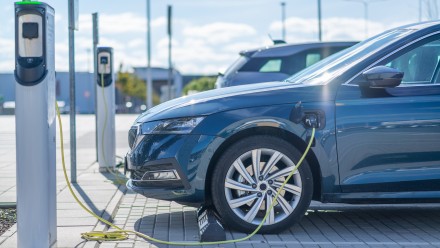Electric Vehicle Charging at the Workplace: Experimental Evidence on Incentives and Environmental Nudges
In order to protect the environment and maximize the use of sustainable energy, it is advisable for owners of electric cars to charge their vehicles during periods when ample solar energy is accessible.
In this ICEDS Energy Seminar, Sebastian Tebbe from the University of Melbourne will discuss a recent study that assessed the impact of environmental nudges and financial incentives on the usage and timing of workplace charging for EVs. The study, which was conducted on a university campus, found that environmental nudges encouraged drivers to shift their charging to later morning hours, coinciding with the greater availability of solar energy. Additionally, offering discounts for charging on campus increased the overall workplace charging activity and led to a shift from daytime to early morning and overnight charging.
Researchers identified three key factors contributing to these changes in charging behaviour: the availability and dependability of the charging infrastructure, concerns about the scarcity of chargers, and the characteristics of the drivers.
Finally, the study analyzed the broader impacts of these changes, including the reduction in CO2 emissions and the associated marginal electricity costs resulting from the shifts in campus charging patterns.
More information:
If you require accessibility accommodations or a visitor Personal Emergency Evacuation plan please contact iceds@anu.edu.au.
By registering for this event you are also subscribing to the ANU Institute for Climate, Energy & Disaster Solutions mailing list. You can unsubscribe at any time by clicking on the unsubscribe button at the bottom of correspondence. Find out more information in the event registration privacy notice.









